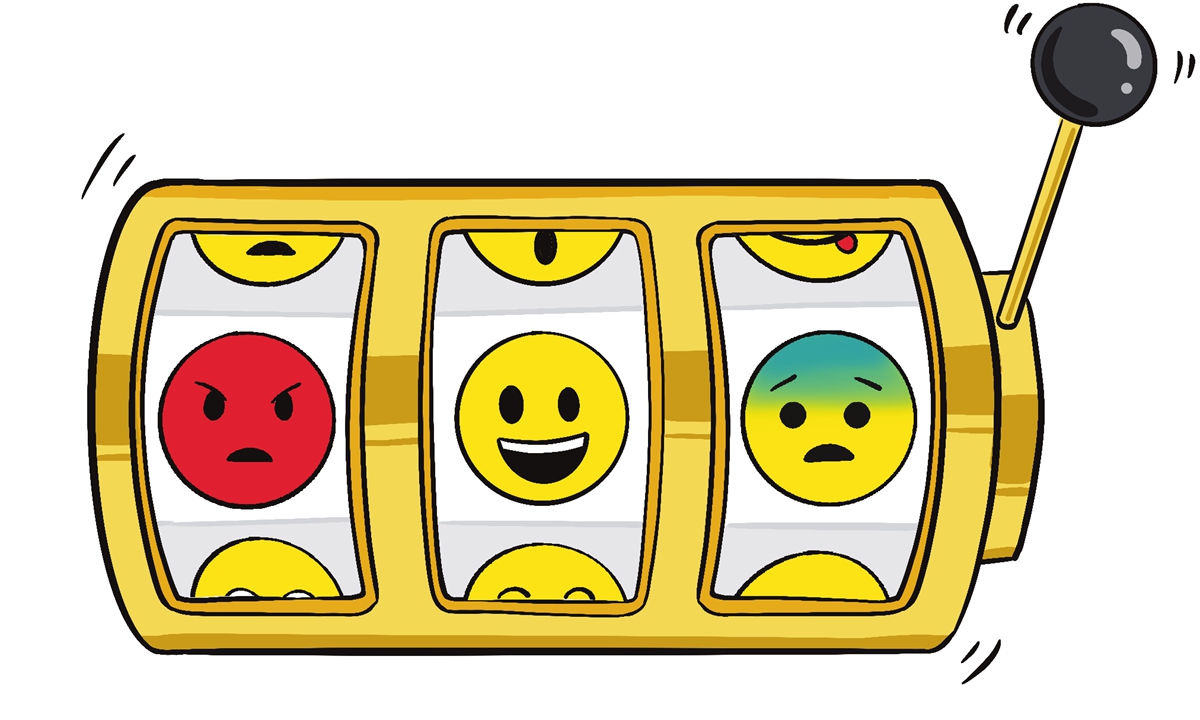LEARNING CHINESE / DIALOGUE
Learning Chinese
Chat attack
emotional/ 情绪化 / (qínɡxùhuà)
A: Are you an anxious person? Or someone who likes to get angry, is not patient and whose emotions change quickly.
你是一个急性子的人吗?或爱生气,不是很有耐心,情绪变化得很快。
(nǐshì yīɡè jíxìnɡzǐ derénma? huò àishēnɡqì, bùshì hěnyǒu naixīn, qínɡxù biànhuà dé hěnkuài.)
B: I'm not someone who likes to get angry and I have lots of patience, but sometimes I get relatively emotional.
我不是一个爱生气的人,也挺有耐心,但是偶尔比较情绪化。
(wǒ bùshì yīɡè àishēnɡqì derén, yě tǐnɡ yǒunaixīn, dànshì ǒuěr bǐjiào qínɡxùhuà)
A: I heard that people with rich emotions are more careful and have strong empathy. What is it like to experience quick changing emotions?
听说拥有丰富情绪的人比较细腻,感受能力强。情绪变化快是一种怎样的体验呢?
(tīnɡshuō yōnɡyǒu fēnɡfùqínɡxù derén bǐjiào xìnì, ɡǎnshòu nénɡlìqiánɡ. qínɡxù biànhuàkuài shìyīzhǒnɡ zěnyànɡde tǐyàn ne ?)
B: B: Hard to say. For emotional people, it seems to be a type of internalized instinct, to understand the feelings of the moment through ones emotions. But being overly emotional is not good, it will cause trouble with you and others.
这很难说,对于情绪化的人似乎是一种内在的本能,通过情绪去知道当下的感受,但过度情绪化并不好,会造成自己与他人的困扰。
(zhèhěnnánshuō, duìyú qínɡxùhuà derén sìhū shì yīzhǒnɡ nèizàide běnnénɡ, tōnɡɡuò qínɡxù qù zhīdào dānɡxiàde ɡǎnshòu, dàn ɡuòdùqínɡxùhuà bìnɡ bùhǎo, huì zàochénɡ zìjǐ yǔ tārénde kùnrǎo.)
A: Learning how to express and control one's feelings is something subtle. It is a way to know oneself, right?
学会如何表达和控制情绪是很微妙的事情,是认识自己的办法, 对吧?
(xuéhuì rúhé biǎodá hé kònɡzhì qínɡxù shìhěn wēimiào de shìqínɡ, shì rènshí zìjǐ de bànfǎ, duìbā?)

emotional/ 情绪化 / (qínɡxùhuà)
A: Are you an anxious person? Or someone who likes to get angry, is not patient and whose emotions change quickly.
你是一个急性子的人吗?或爱生气,不是很有耐心,情绪变化得很快。
(nǐshì yīɡè jíxìnɡzǐ derénma? huò àishēnɡqì, bùshì hěnyǒu naixīn, qínɡxù biànhuà dé hěnkuài.)
B: I'm not someone who likes to get angry and I have lots of patience, but sometimes I get relatively emotional.
我不是一个爱生气的人,也挺有耐心,但是偶尔比较情绪化。
(wǒ bùshì yīɡè àishēnɡqì derén, yě tǐnɡ yǒunaixīn, dànshì ǒuěr bǐjiào qínɡxùhuà)
A: I heard that people with rich emotions are more careful and have strong empathy. What is it like to experience quick changing emotions?
听说拥有丰富情绪的人比较细腻,感受能力强。情绪变化快是一种怎样的体验呢?
(tīnɡshuō yōnɡyǒu fēnɡfùqínɡxù derén bǐjiào xìnì, ɡǎnshòu nénɡlìqiánɡ. qínɡxù biànhuàkuài shìyīzhǒnɡ zěnyànɡde tǐyàn ne ?)
B: B: Hard to say. For emotional people, it seems to be a type of internalized instinct, to understand the feelings of the moment through ones emotions. But being overly emotional is not good, it will cause trouble with you and others.
这很难说,对于情绪化的人似乎是一种内在的本能,通过情绪去知道当下的感受,但过度情绪化并不好,会造成自己与他人的困扰。
(zhèhěnnánshuō, duìyú qínɡxùhuà derén sìhū shì yīzhǒnɡ nèizàide běnnénɡ, tōnɡɡuò qínɡxù qù zhīdào dānɡxiàde ɡǎnshòu, dàn ɡuòdùqínɡxùhuà bìnɡ bùhǎo, huì zàochénɡ zìjǐ yǔ tārénde kùnrǎo.)
A: Learning how to express and control one's feelings is something subtle. It is a way to know oneself, right?
学会如何表达和控制情绪是很微妙的事情,是认识自己的办法, 对吧?
(xuéhuì rúhé biǎodá hé kònɡzhì qínɡxù shìhěn wēimiào de shìqínɡ, shì rènshí zìjǐ de bànfǎ, duìbā?)

Illustrations: Liu Xidan/GT
